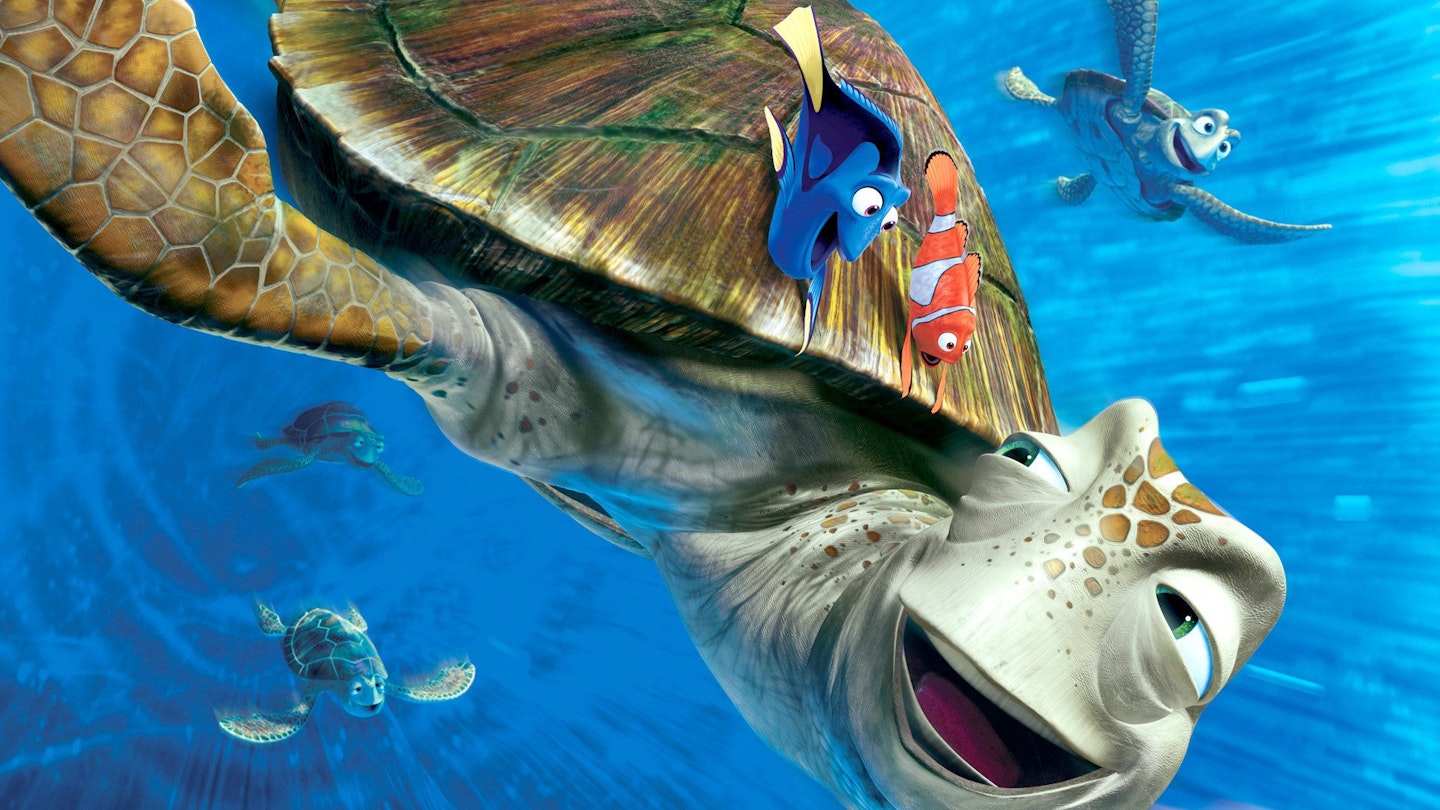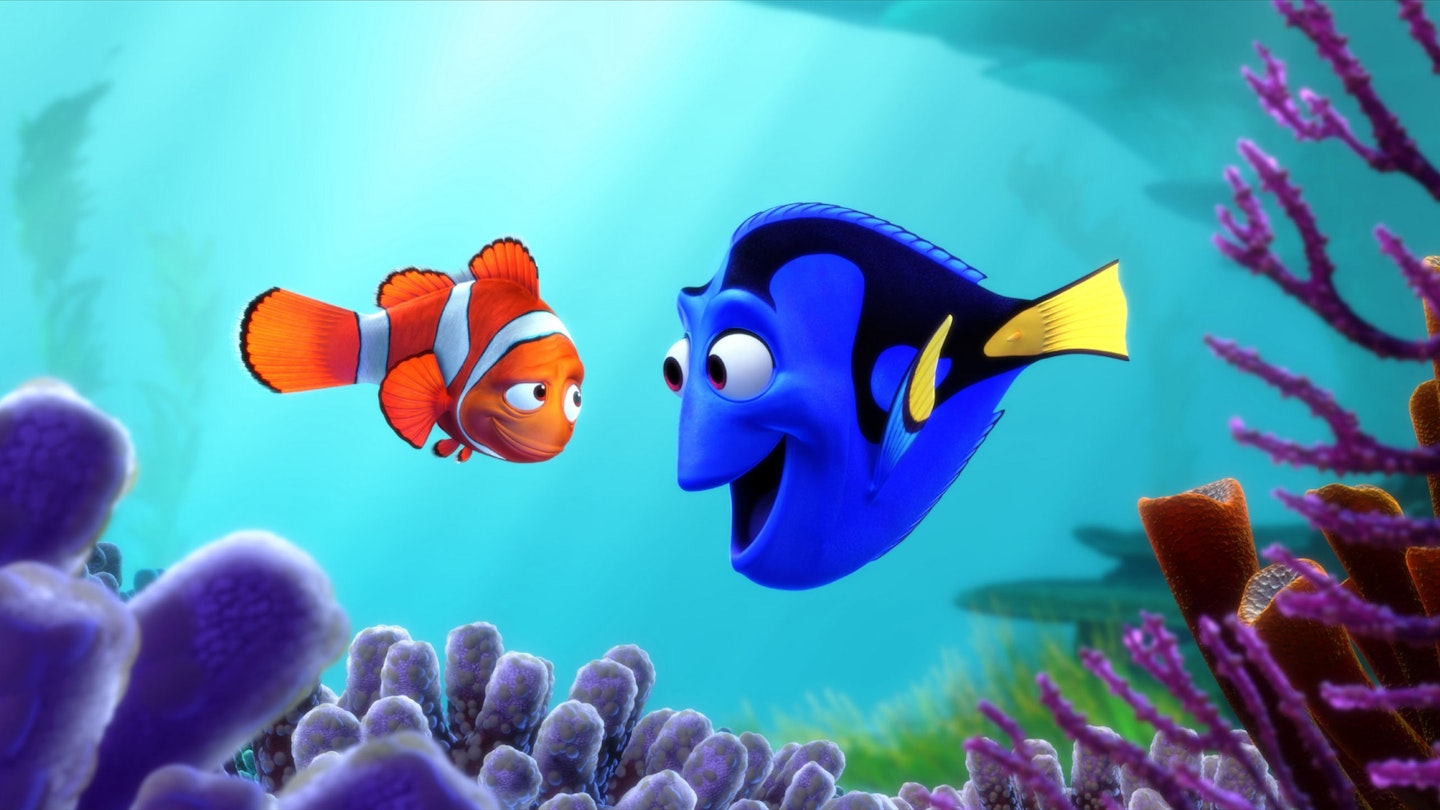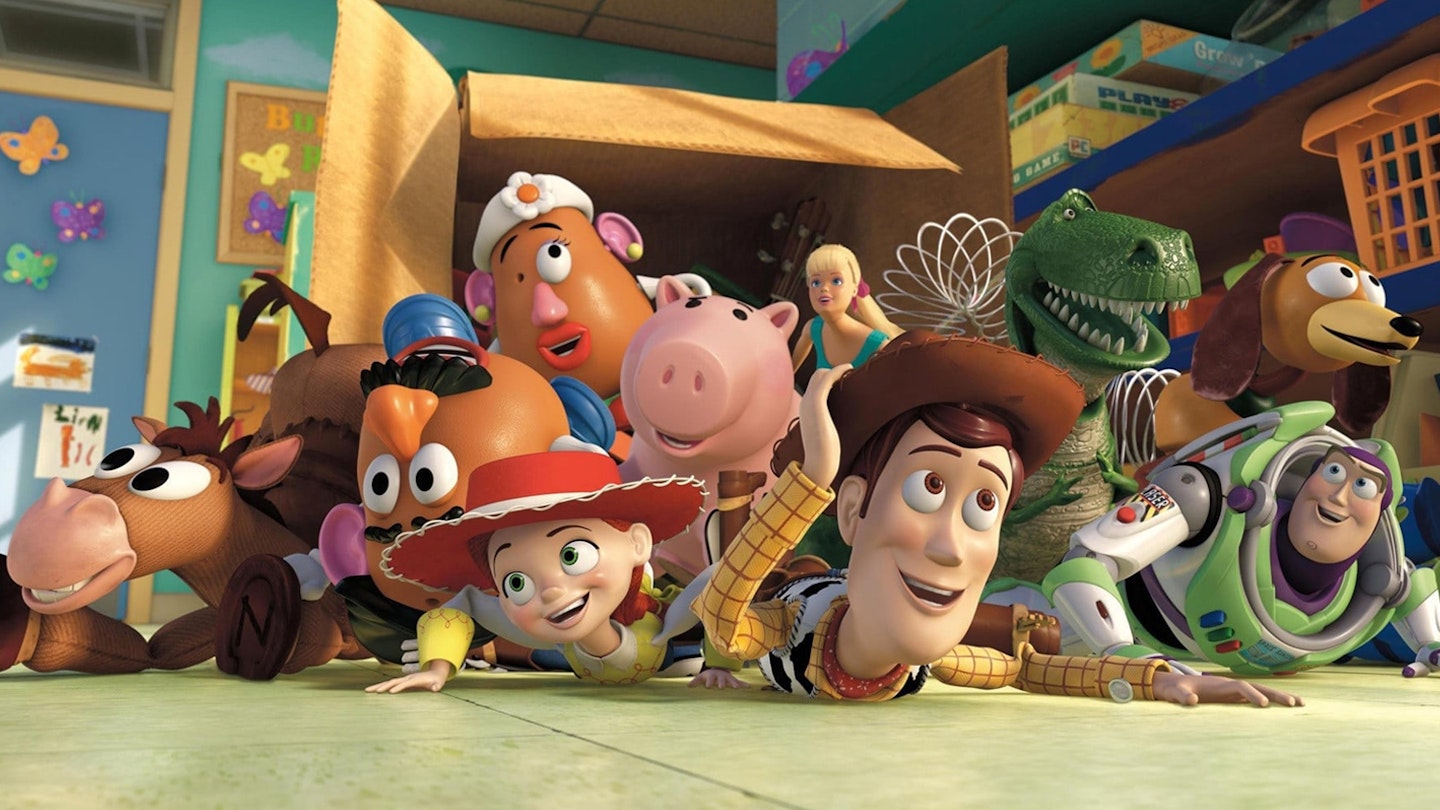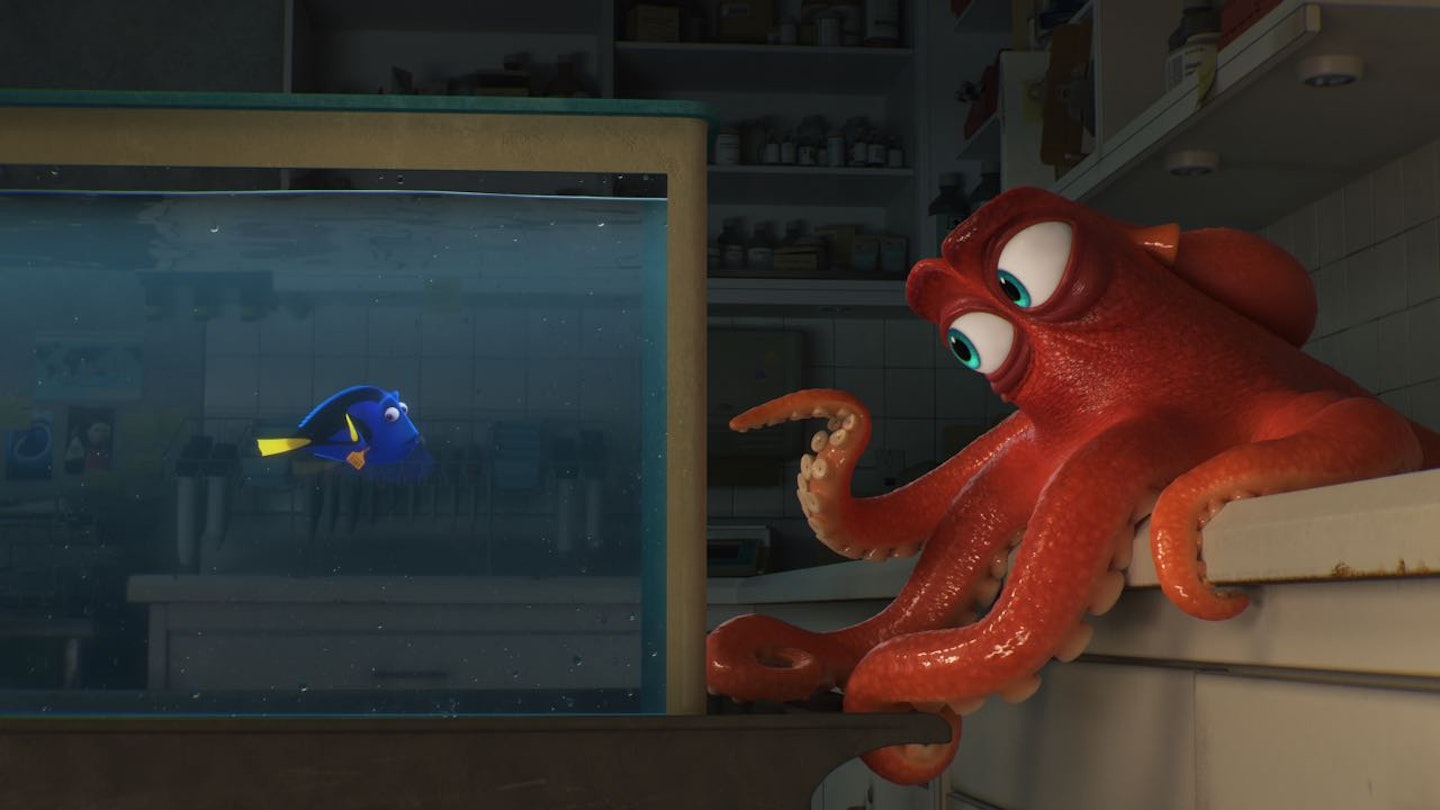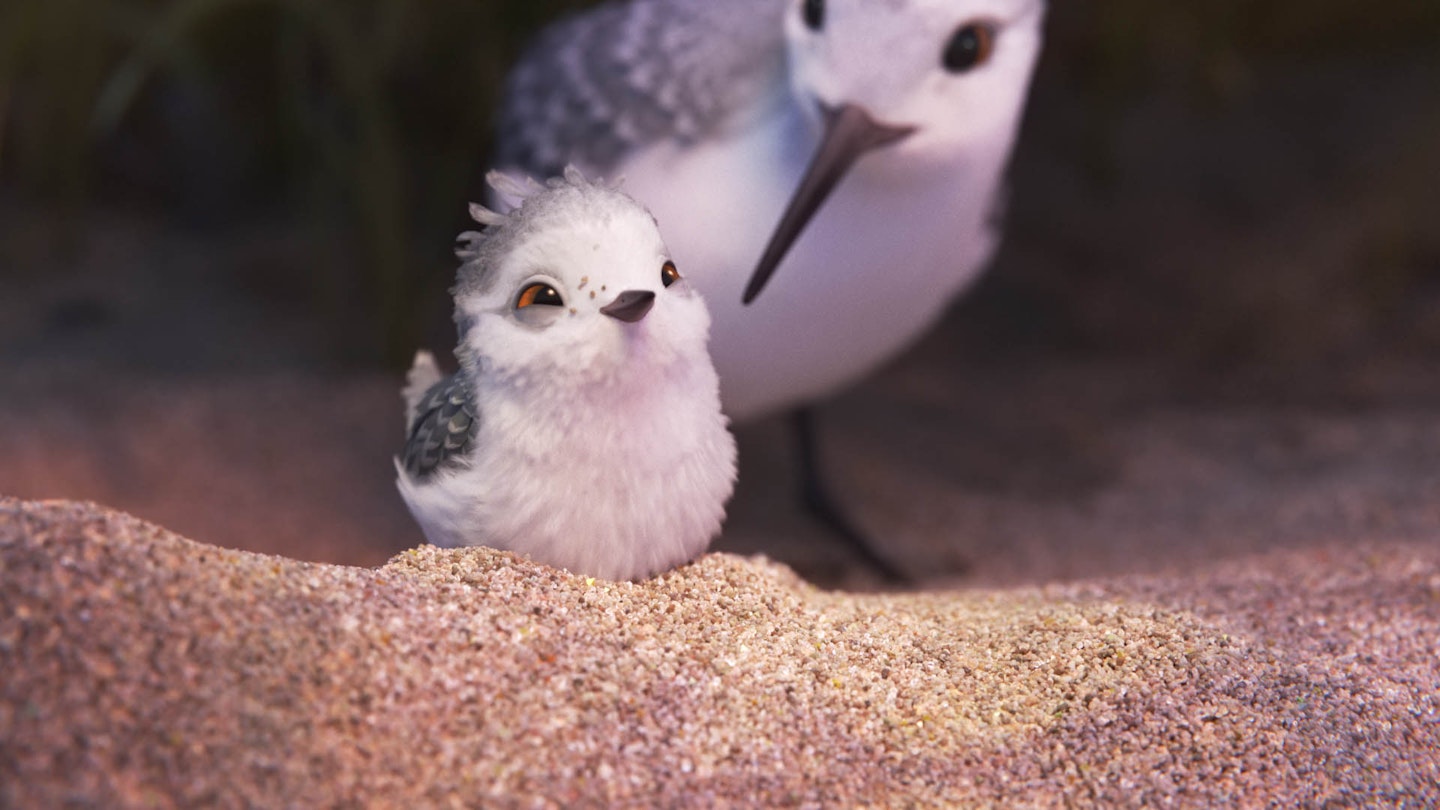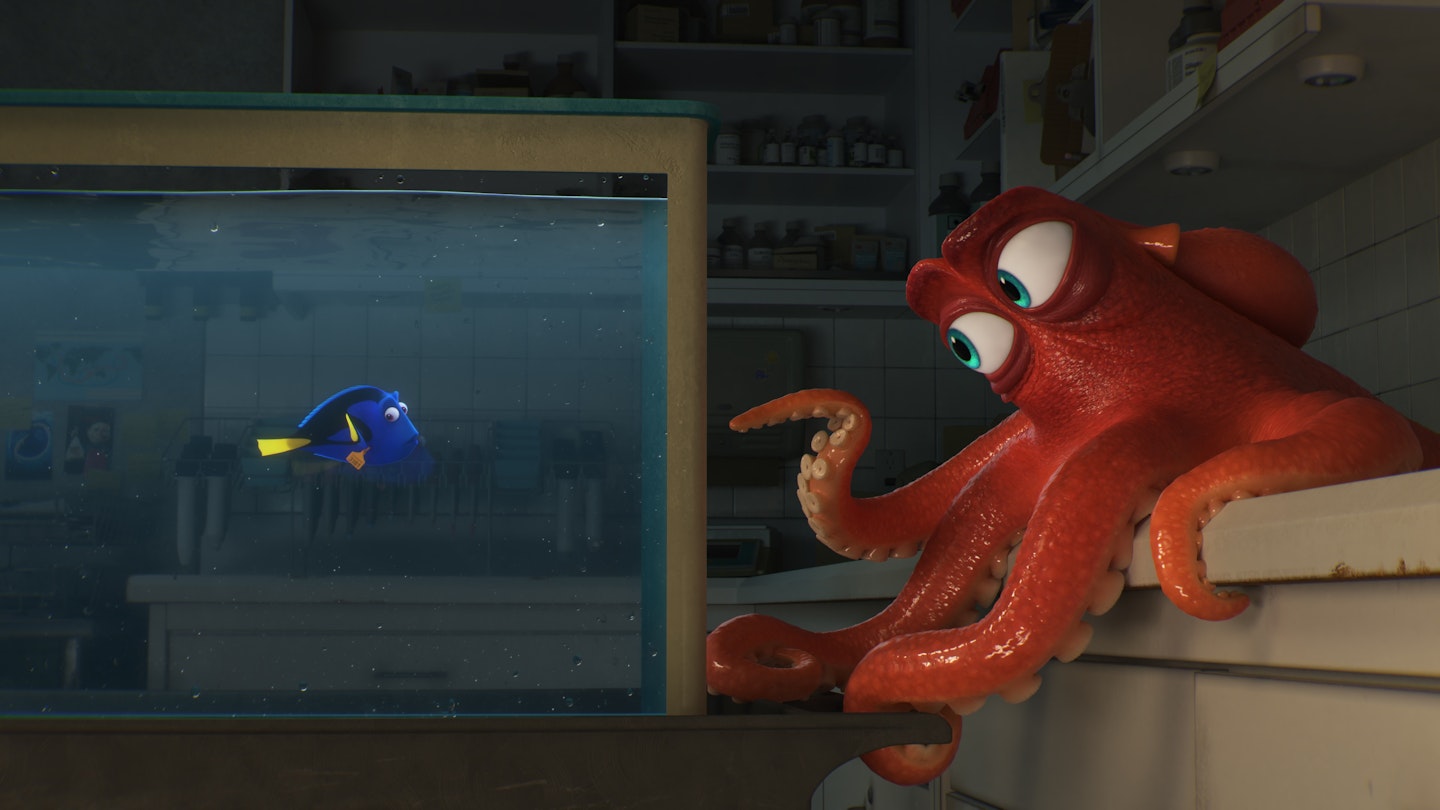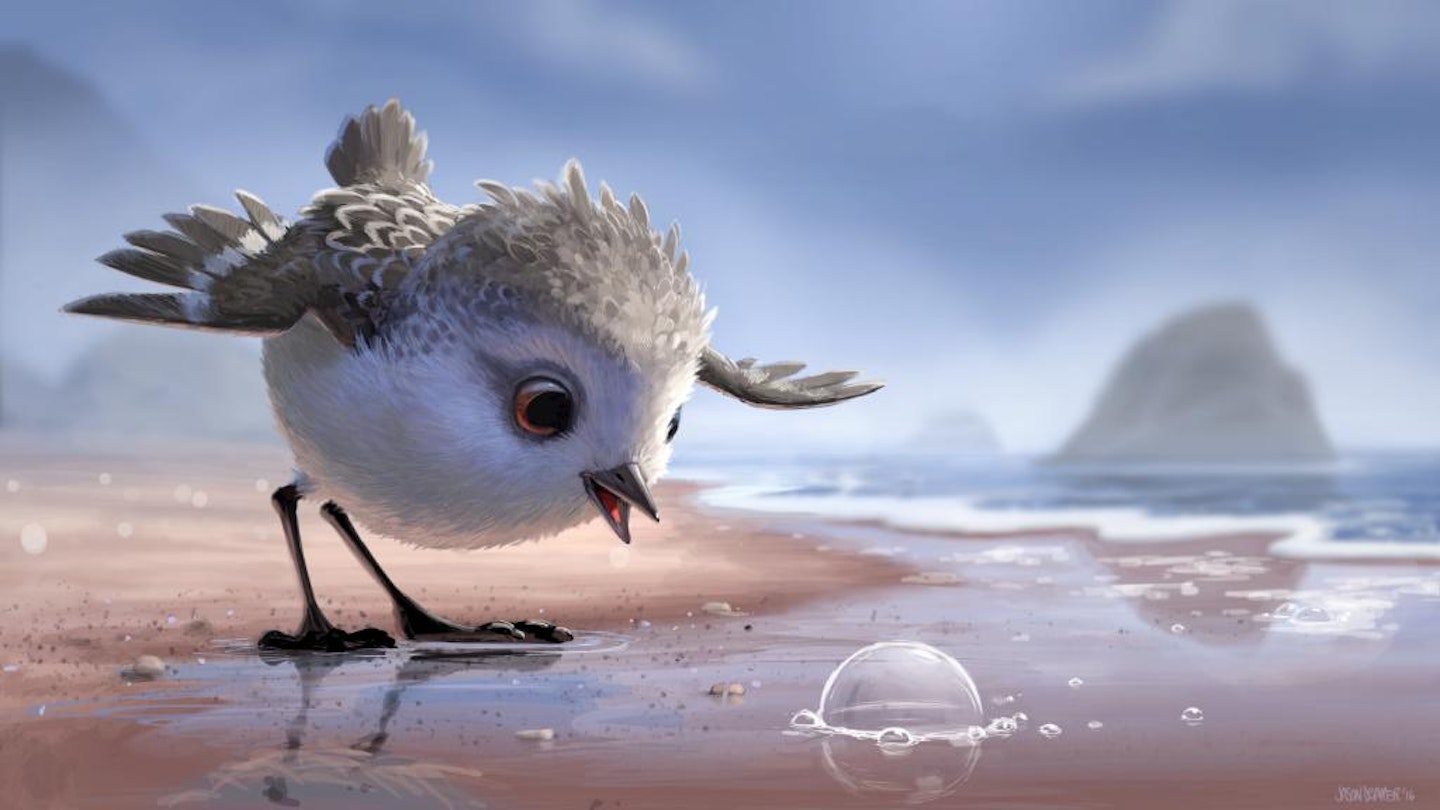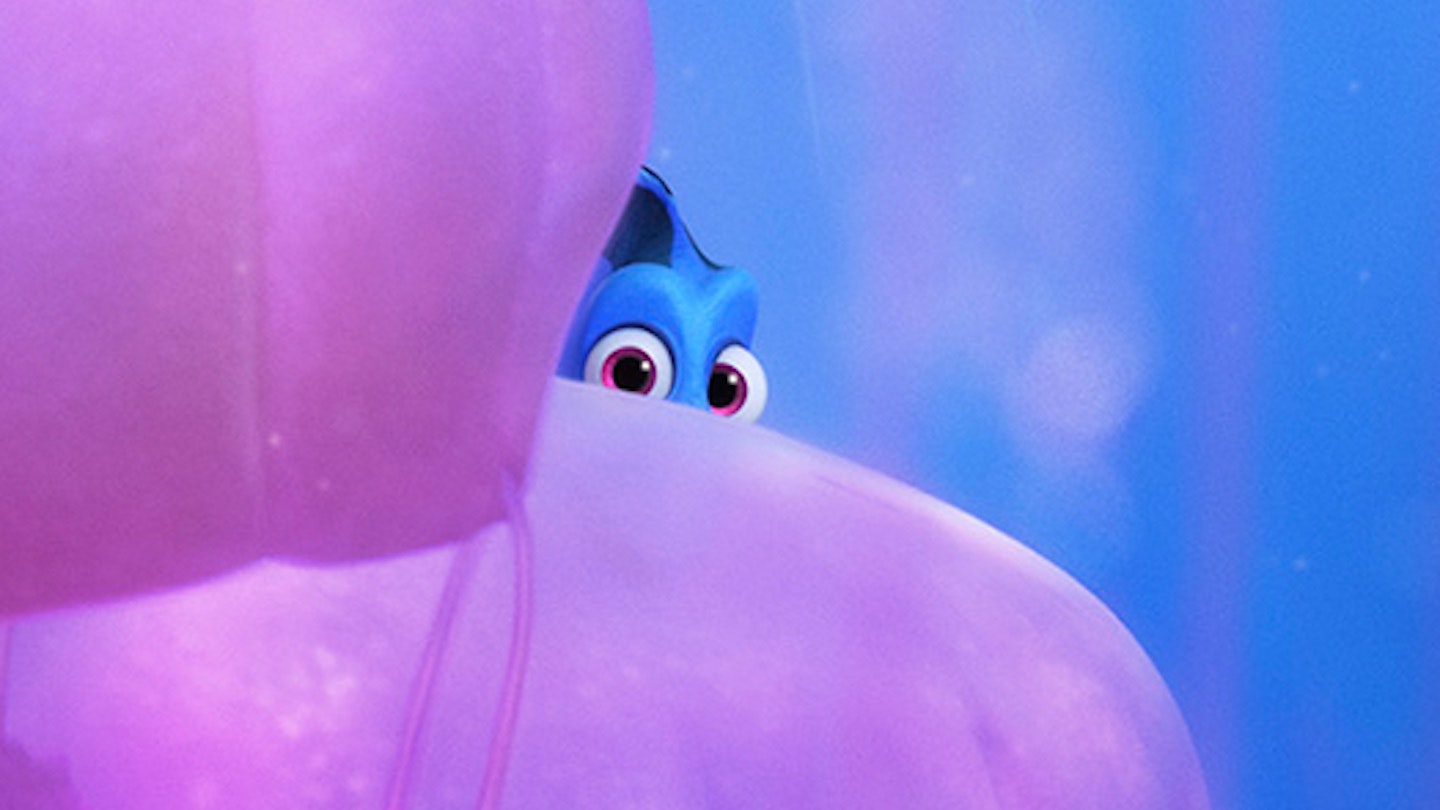No doubt there is a scientific explanation for why human eyes are always drawn to a tank full of tropical fish. Whatever the fascination is, the Pixar boys have it rumbled - so entrancing is the composition of this animated fishy tale.
On paper, a story about fish doesn't sound as engaging as a yarn about cuddlier critters or the secret life of toys. But, of course, the eye-catching marine life in Finding Nemo is more human than piscine. Marlin is a red-and-white clownfish at pains to correct the misconception that his species is funny. He can't tell a joke to save his life and has been a bundle of nerves since his mate and her eggs were eaten. The sole survivor was Nemo, who, in a differently-abled touch, has an under-developed fin and has been kept sheltered in the anemone they call home. Rebellious, he wanders off perillously close to a fishing boat, is caught, and gets plopped into a Sydney dentist's waiting-room aquarium, where senior prisoner Gill is plotting a great escape with the kind of ingenuity and daring immortalised in the more upbeat prisoner-of-war movies.
Anthropomorphism runs (or is that swims?) riot on Marlin's quest. One of the characters, somehow, fortuitously reads English. A toothsome trio of sharks (led vocally by Barry Humphries) have formed a Fish-Eaters Anonymous chapter which meets in a wrecked submarine to forswear cannibalism (pity we aren't told what the alternative nourishment is). And reports of the devoted father's courageous journey spread through the ocean and above it until a multiplicity of genuses are rooting him on. This passes the point of absurdity when Marlin hitches a lift to Australia with thrill-seeking stoner turtles who talk like Bill and Ted.
Yet it's all beautifully composed and consistently charming, as Disney's bacon-saving association with the inventive Pixar studio strikes gold again in a perfectly family-oriented pitch of adventure, humour and thinly-veiled life lessons for the sprats.
The voice cast is highly recognisable and the scripted characterisations capitalise on actors' familiar mannerisms - particularly Brooks' perennially neurotic, pessimistic schtick wrapped up in the anxious Marlin; DeGeneres' perky, goofy Dory (who wittily suffers from short-term memory loss and regularly has to be reminded of the story so far); Dafoe's sinister gravitas in the battered, grimly determined Gill; and Rush's uninhibited pizzazz for Nigel the pelican.
Grown-ups may experience some restlessness as sentimentality seeps in. But there are nods to adults in fun homages to Psycho, Pinocchio and The Terminator (the pelican getting the immortal line, "Hop inside my mouth if you want to live"), in almost subliminal leg-pulls (a moored boat named The Surly Mermaid), and in a postscript visual gag that makes sitting through the end credits essential. The style is a triumph in the use of colour, movement and effects - notably in the detailed schools of fishes, the emergence of figures from the blurry depths and a 'swirling vortex of terror' sequence.
